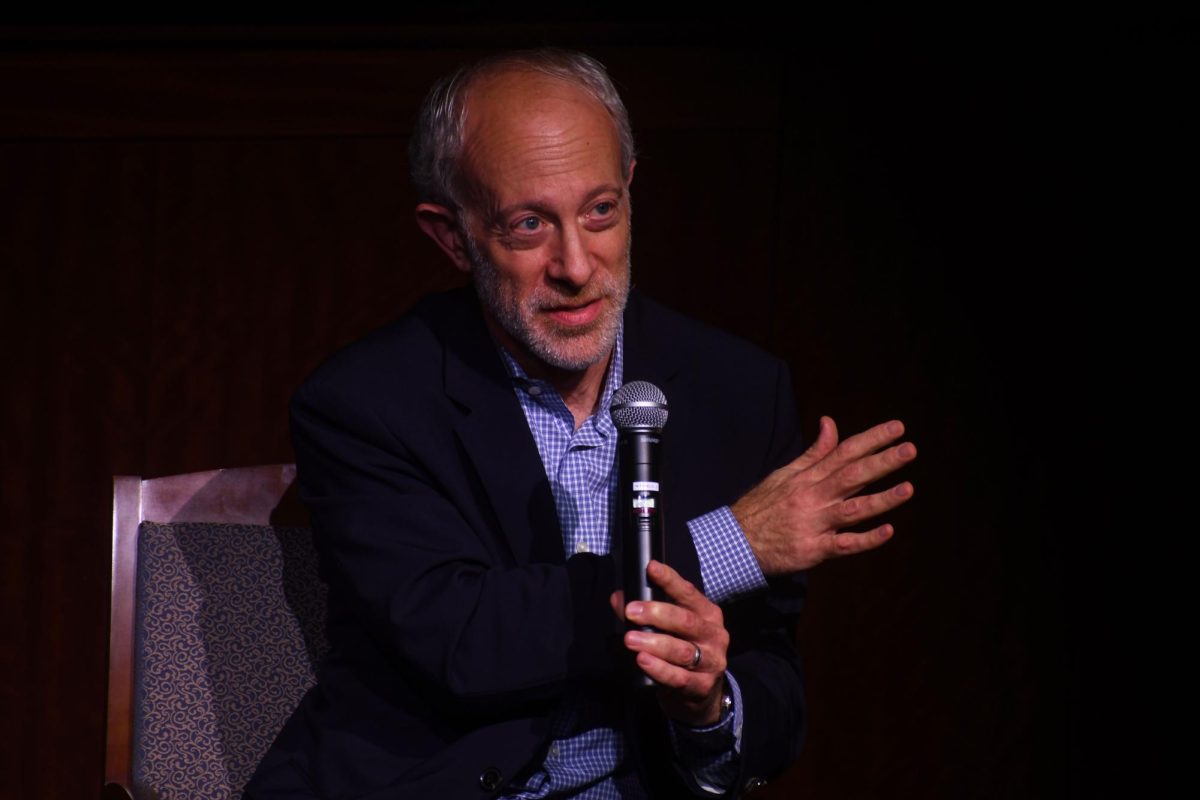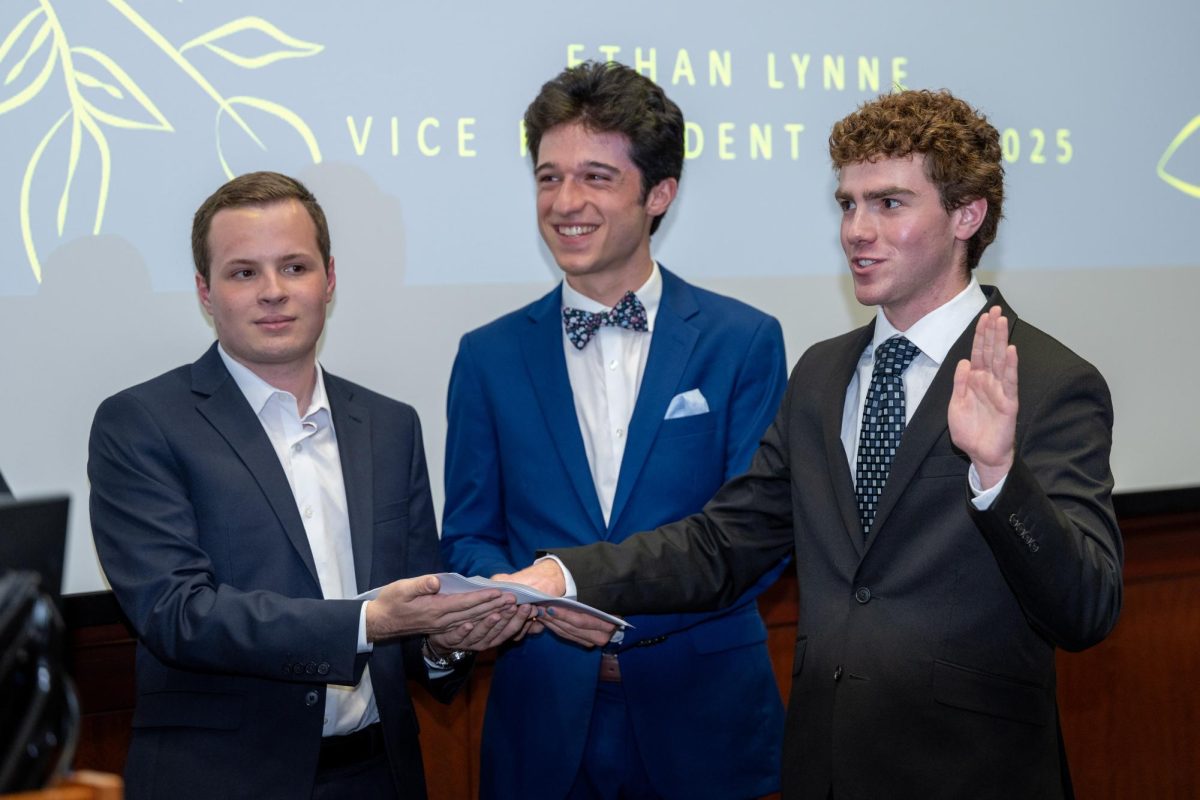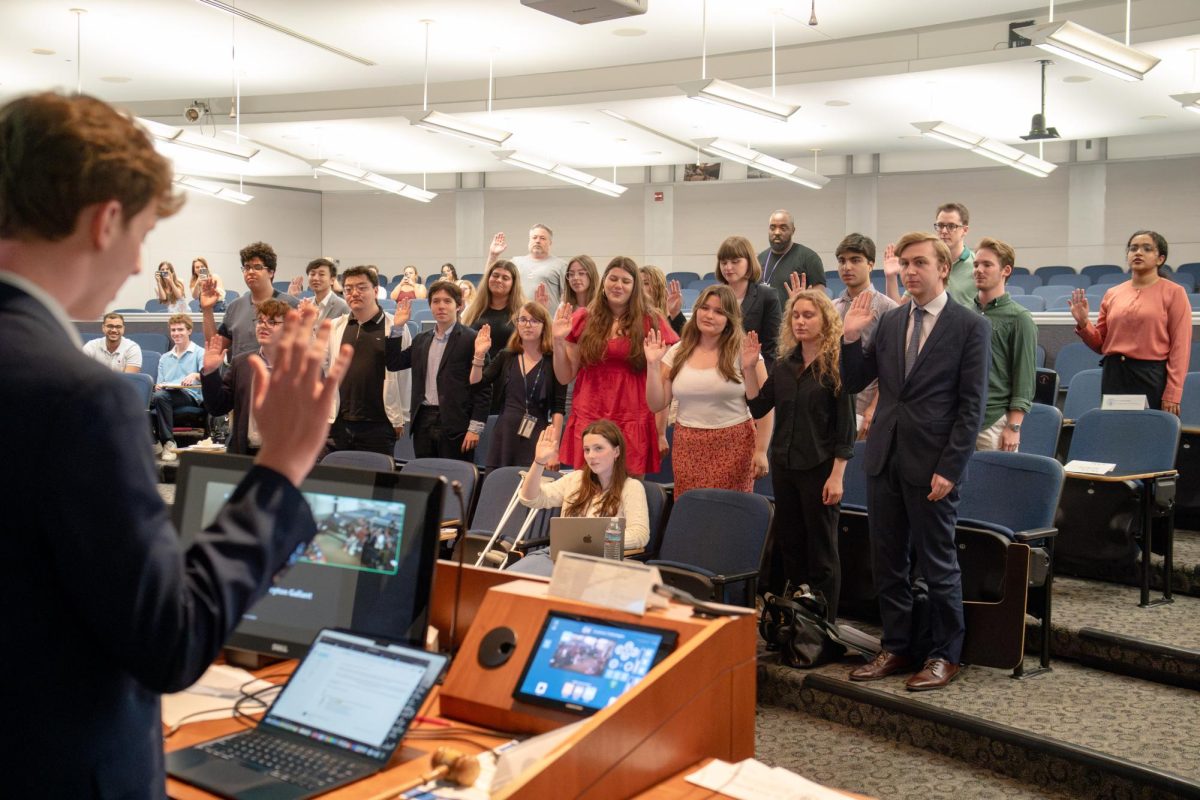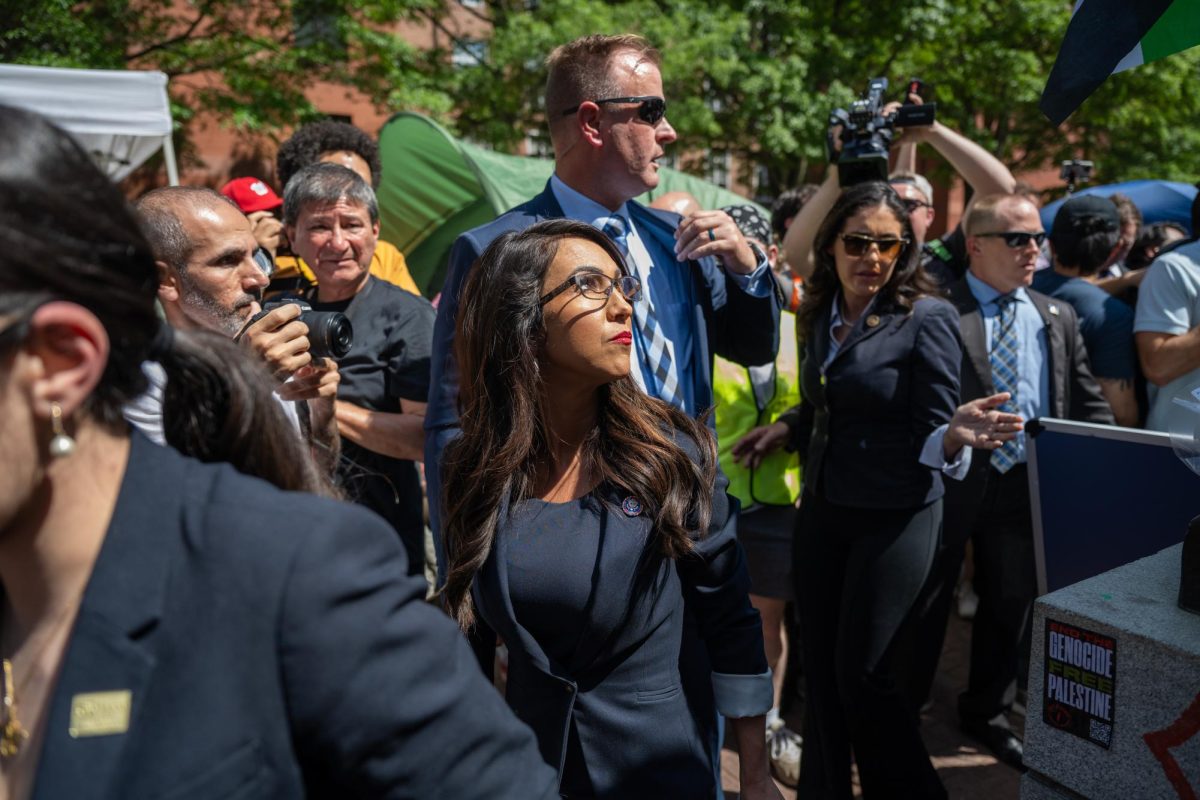A former White House presidential speech writer talked about his experience working under President Bill Clinton and the value of political communication at a town hall in the University Student Center on Tuesday.
Jeff Shesol, a presidential speech writer for Clinton and a founder of West Wing Writers, a media firm led by former speech writers, said speech writing for the administration was the most challenging thing he’s ever done in his career because of the role’s “intensity.” The forum was hosted by the Student Association and GW College Democrats and organized by SA Sen. Jonesy Strell (CCAS-U), the campaign activities director for GW Democrats.
Shesol said the Clinton administration recruited him to the speechwriting role in 1997 after Clinton read his book, “Mutual Contempt,” about the rivalry between Lyndon Johnson and Robert Kennedy. Shesol — who went on to help write the 1999 and 2000 State of the Union addresses — said he had no previous experience with speech writing before working for the Clinton administration but wrote his first speech for the president in the first days of his job at the White House, which was about food security in the United States.
“I stood in the back of the Roosevelt Room, having a kind of out of body experience watching the President of the United States, who I had, at this point, met a couple of times, but I’d not spent a lot of time with,” Shesol said. “I’d seen him on TV a lot and there he was at the other end of the Roosevelt Room reading my words into the camera and watching reporters take notes, and it was sort of a hallucinatory moment.”
Shesol said there was an “incredible camaraderie” among White House staff despite employees having individual ambitions and rivalries. He said he is lucky to share the experience of working for the President, and the memories formed a bond among staff that would’ve been hard to create in a different environment.
“This was a group of people who came together because they really believed in what this administration was trying to get done,” Shesol said.
Shesol said aspiring speechwriters should ensure they have a clear and consistent message when communicating in the digital age because of the increased amount of “noise” online and in media. He added that while he does not believe artificial intelligence has the potential to replace speechwriters, it holds the capability to “ruin the authenticity of a lot of things.”
“I’m not looking for a substitution for human creativity, even if it can do it,” Shesol said. “I would rather hire some excellent humans than just to sort of sit on my own, providing the right inputs.”
Shesol said getting his masters degree in history from Oxford University taught him to recognize repeating patterns in political history. Shesol drew a parallel between President Franklin Roosevelt’s 1937 plan to appoint six more pro-New Deal justices to the Supreme Court to prevent the court from striking down the legislation and Democrats’ current interest in adding more liberal justices to the court after Senate Republicans blocked President Barack Obama from filling the vacant seat of late Justice Antonin Scalia in 2016.
Shesol said he encourages students to learn how to write in more than one discipline because some of his “toughest” most important lessons in writing came from the English department and other subjects, not just the history department.
Shesol said students interested in politics should take advantage of the “incredible opportunity” of going to university in D.C. and should work hard if they pursue internships, no matter how small the role.
“If this staffer is incapable of getting it done, or getting it done quickly, or getting it done right, then they’re going to look to the next person,” Shesol said. “And so no matter where you are in the org chart, no matter how young you are, if you show that you are capable, then you’re going to get more responsibility.”











